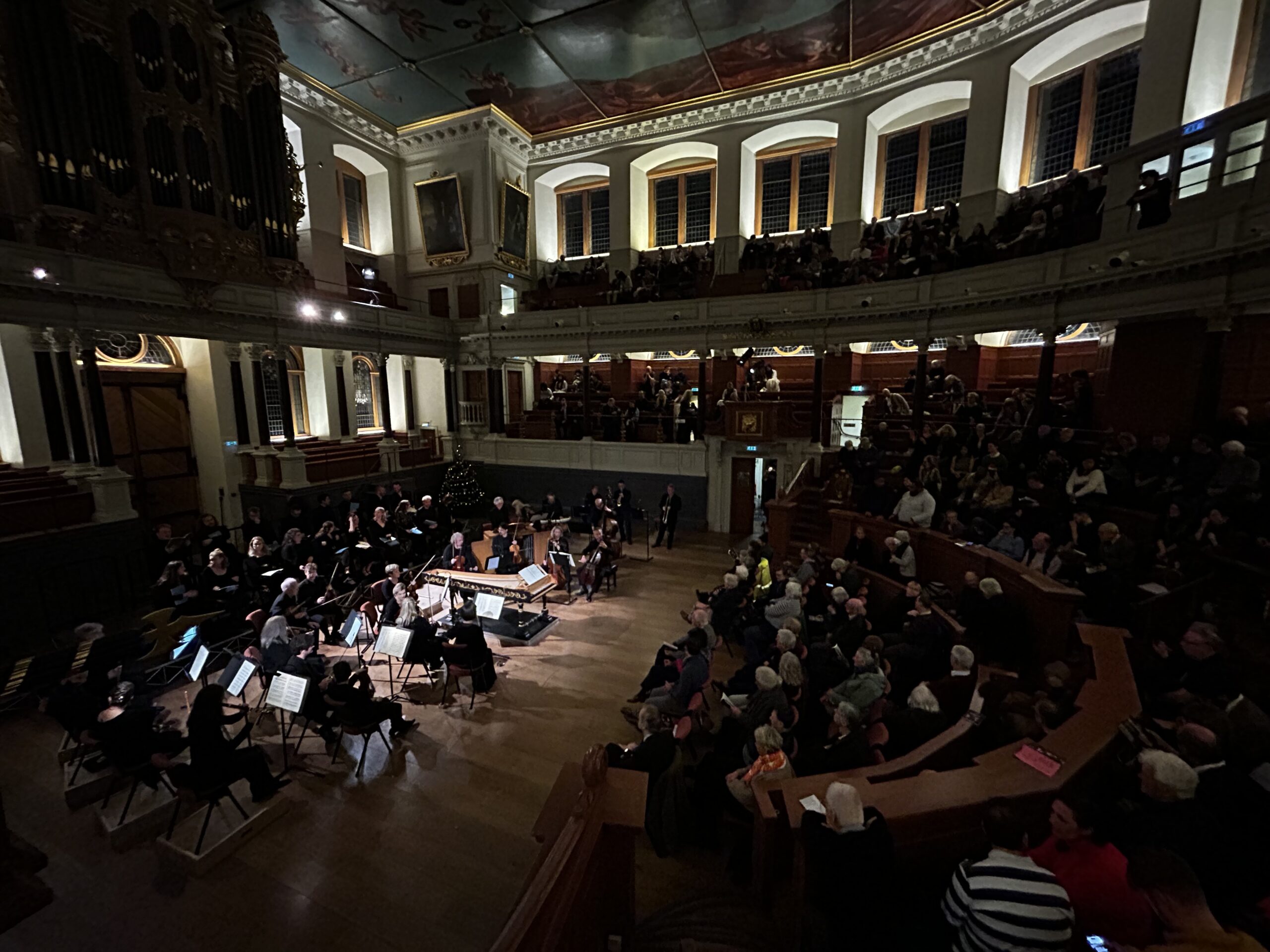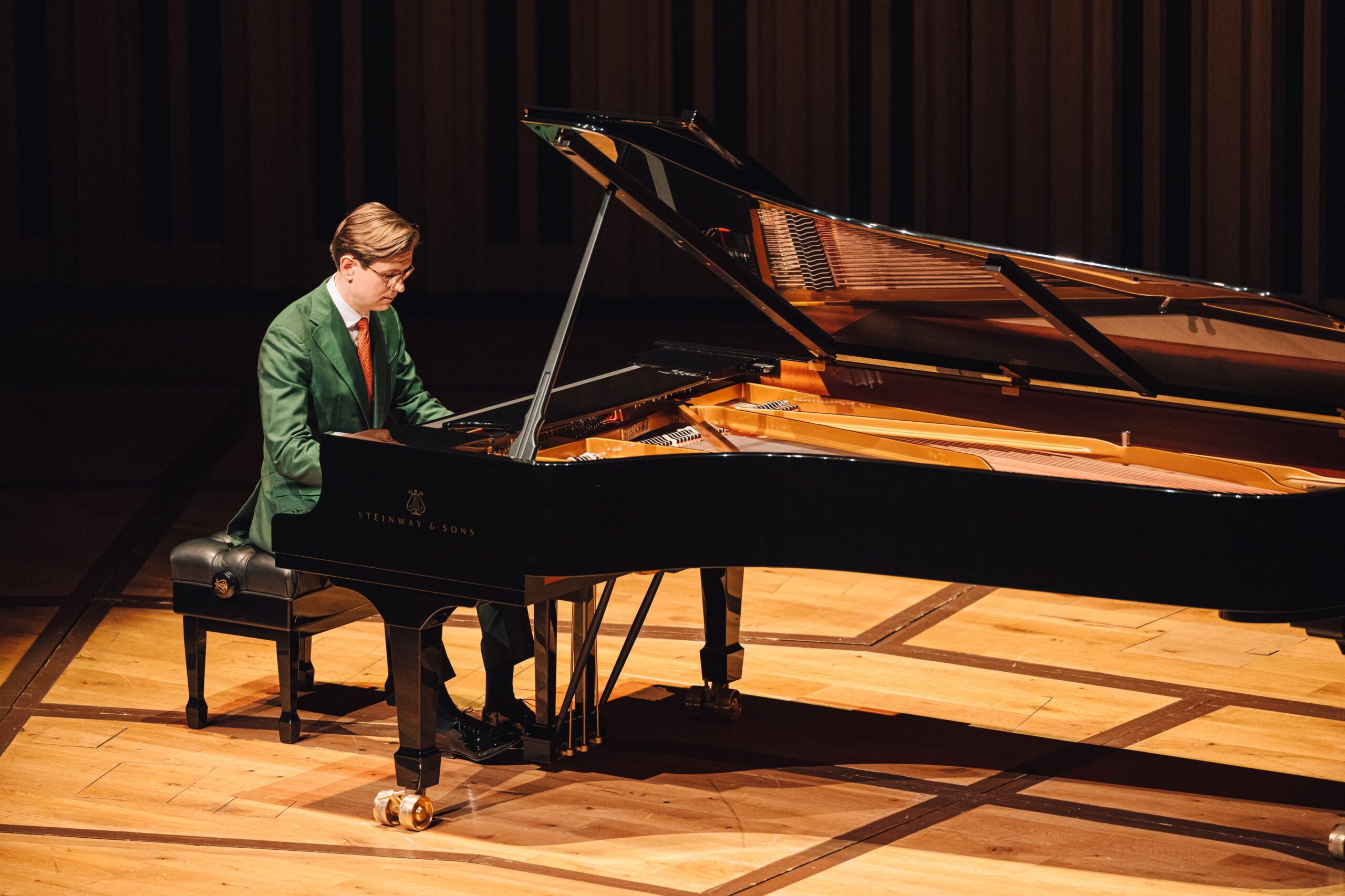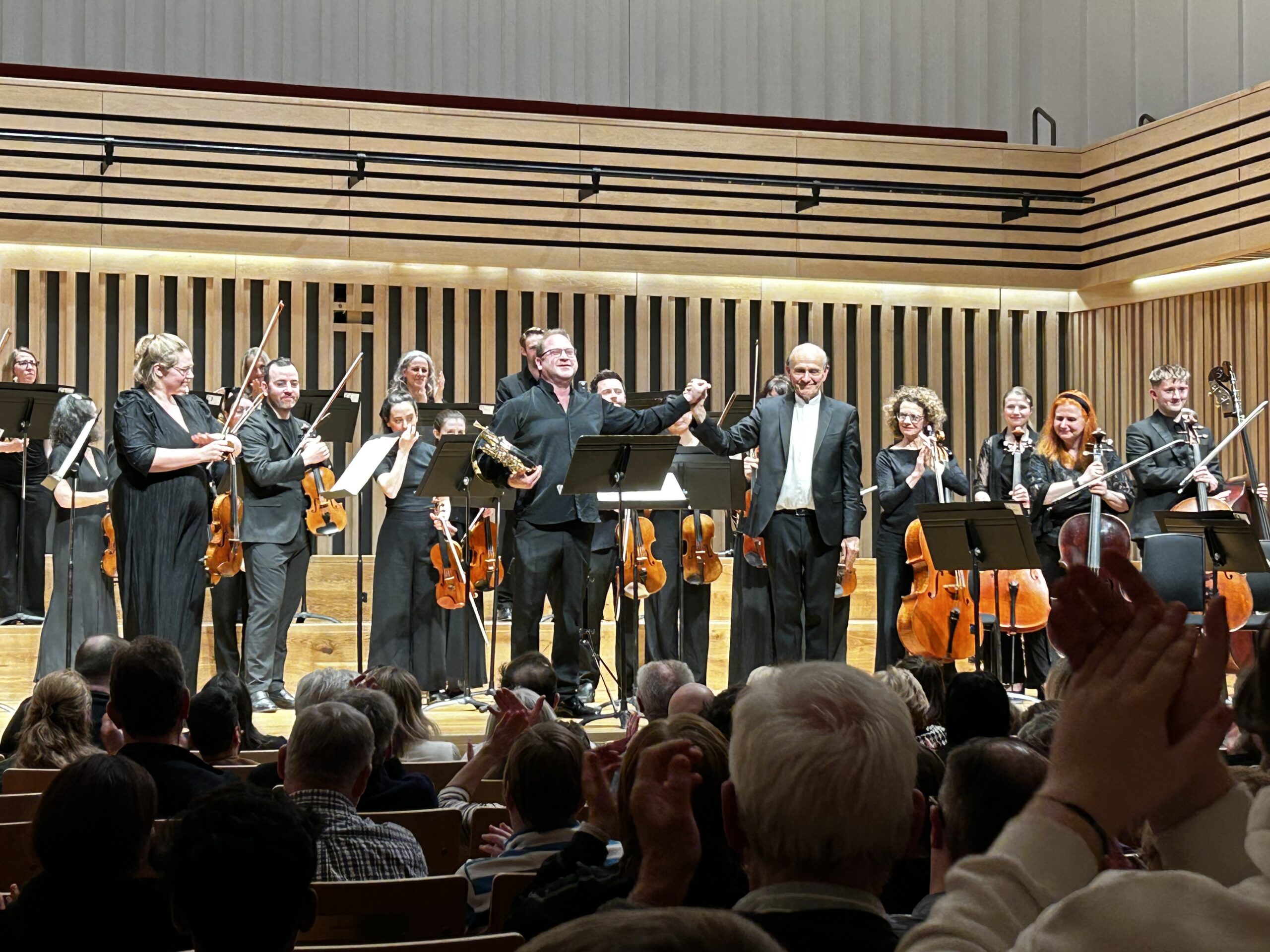Musicians and musicologists convene in Oxford for a high point in the Oxford Philharmonic’s Bach Mendelssohn Festival throwing new light on JS Bach’s revival and Mendelssohn’s role in bringing it about
Oxford has hosted visiting academics, commentators and musicians at Oxford Philharmonic’s Bach Mendelssohn Festival this past weekend, in a weekend of talks and concerts which has provided context about both composer’s and the historical connection between the too.
The weekend combined a day of talks exploring some of the latest insights that detail the revival of the music of JS Bach in the 1830s, with concerts given by Laurence Cummings and visiting orchestra Academy of Ancient Music, and a performance of Mendelssohn’s last work Elijah with soloists Masabane Cecilia Rangwanasha and Bryn Terfel.
Even a brief visit to the Bach Mendelssohn Festival Insight Day led by Nicholas Kenyon and Katy Hamilton provided valuable insights. Bach’s present-day universal appeal is in stark contrast to the years after his death in 1750 when much of his music went under-appreciated. Were it not for the fortuitous gift of Bach’s St Matthew Passion score — given by his son CPE Bach to Mendelssohn’s maternal grandmother, JS Bach’s music may have faded into obscurity. That Bach’s legacy could hinge on such a precarious act reminds us how easy we take the enduring presence of Bach’s music for granted today.

Mendelssohn’s 1829 performance of Bach’s St Matthew Passion at the Singakademie in Berlin, is often seen as the critical where the revival in Bach’s music began. In reality, the Bach revival wasn’t down to one singular point, its complexities making for a far messier account. There were as early as 1828 plans announced by another publisher to make available JS Bach’s St Matthew Passion score, though Mendelssohn’s concerts undoubtedly accelerated these existing projects. Whilst the first publication of Bach’s score followed in the years directly after, it wouldn’t be until as late as 1894 (musicologist believe now) that the instrumental parts for St Matthew Passion were published. The widespread appreciation for JS Bach didn’t happen overnight, nor the distribution of one of his now most-loved works.
The contrast between our present day appreciation of Bach’s music and how it was regarded after his death was underlined at the beginning of the Academy of Ancient Music’s Bach Mendelssohn Festival concert in the Sheldonian Theatre on Saturday night. The motets are regarded today as the works that helped maintain Bach’s posthumous musical reputation. Opening the concert, the motet Der Geist Hilft Unser Schwachheit auf gave the concert a sense of thematic and historical unity. In performance however, the complexity of Bach’s two chorus setting made did at times present challenge. Places where chorus and orchestra felt a little imbalanced, with some occasional ragged articulation and diction made this well-executed but in need of a little polish.
This sense of imbalance continued into the Orchestral Suite No.3. The ensemble settled during the famous Air where Bach’s melodic interplay gave the strings room to stretch, pull, and breathe, achieving a tautness that remained for the rest of the suite.
Concluding the first half, the motet Singet dem Herrn (probably written in 1727) revealed the 10-strong Oxford Philharmonic Chorus operating with an entirely different level energy, focus and precision. Their vocal blending was tighter, articulation more disciplined, and phrasing consistently clear. At times, the voices felt underpowered, especially during passages where the ensemble split into smaller groupings, exposing moments of less confident execution. However, louder tutti sections saw the group’s power and self-assurance return, bringing energy and conviction to the performance.
So rich is the musical texture created by Bach’s writing that it seems incredible today that anyone might have deemed his work as old fashioned. His 1723 Magnificat is a musical showcase of material concision. Nothing lingers and everything delights. For Christopher Hogwood, quoted in the excellent programme notes, the Magnificat amply demonstrates how Bach understood his audience — he needed to grab their attention and hold it. The parallels with the present day are striking. Content on digital platforms goes by a similar mantra — its not that users don’t have time, its simply that they’re demanding. Anticipate needs, deliver value, and don’t waste the audience’s time. Hearing the Magificat with this mind underlined Bach’s unparalleled musical achievement.
The concise Magnificat packs a punch, making considerable demands of orchestra, chorus and soloists alike. Everything needs to be on point. This wasn’t always the case — some voices struggled to assert above the orchestra, decoration sometimes subduing the sound. In Quia respexit Leo Duarte’s counter-melody on the oboe was gorgeously plump and resolute, adding a rich layer to the ensemble. The concluding fugue of the ensemble was fiercely executed, drawing enthusiastic applause. Deposuit potentes had a sense of urgency, with fierce electrifying string playing from the violins. Tenor Will Anderson was undoubtedly the star of the show, prompting us all to look up from our programmes and lean in. Delectable texture, instinctive musicianship — the kind of voice you want to take home and introduce to your parents. Where it was confident, the chorus sung with a fierce energy; in some places where the voices were more exposed a shift in confidence resulted in a lack of support and a hint of vulnerability. Moments of jeopardy cast into shadow by self-assured sequences.

Mendelssohn‘s oratorio Elijah – his last work – is an epic work designed to dazzle. At its Birmingham Town Hall premiere Mendelssohn had at his disposal over 400 musicians. The Sheldonian accommodated a quarter of that number, the Oxford Philharmonic Orchestra and 70 strong Crouch End Festival Chorus responding well in challenging circumstances, thundering through the lengthier first part with reasonable success. When singing together the Crouch End Festival Chorus had a fierce unequivocal confidence, but sometimes lacked support when vocal material was separated out. John Lubbock is a choral rather than orchestral conductor, resisting clear beats (and certainly not sub-divided ones) in favour of vague gestures and the occasional thrusting finger. This made musical details difficult to execute for the near 80 strong band. This placed greater demands on leader Carmine Lauri to direct the string section, and whilst this strategy largely yielded results, there were occasions when the rest of the section lagged behind. Stability was achieved whenever Bryn Terfel, Angharad Lyndon, Tristan Llyr-Griffiths and Masabane Cecilia Rangwanasha sang — moments when the soloists resolute lead was the direction the entire ensemble needed. But the dynamics saw some soloists struggling to maintain their position, Terfel’s often operatic projection resulting in his sound production faltering towards the end. Mezzo Angharad Lyndon‘s warm tones provided much needed solidity. Masabane Cecilia Rangwanasha’s silky smooth legatos and cut glass articulation made every cue a moment to behold. Treble Belinda Gifford-Guy combined strong technique with charming vulnerability that worked well paired with Terfel’s powerful Elijah. Where the first part was predominantly bombastic, the second part saw greater dynamic range, and precision ensemble. Clearer diction from the chorus completed the package, transforming the performance from that felt oversized for the venue in the first half, to far more a sensitive response to it in the second.
Curated by David Whelton, the Bach Mendelssohn Festival is appealing and rewarding offer, the Insight Day in particular prompting deeper understanding of both composers. This combination made for a rich thought-provoking experience. In our on-demand world assumptions bloom about the lifespan of the music we’re listening to. Its availability today belies its chequered past. So much of our present day music is rooted in the work of Bach. How different might it have been had that messy revival not have taken hold? Learning about the lifespan of a composer’s output deepens our understanding and ultimately our appreciation for the music. We need to make more time for this music appreciation, not less. If we’re eager to respond to the nostalgia of analogue activities, might advocating the benefits of music appreciation expand our enjoyment of classical?
Splitting the Festival up into two separate blocks (November – December 2024, and February – March 2025) has the added advantage of giving space to reflect on performances and draw visitors back to Oxford to experience more. In this way, the Bach Mendelssohn Festival is widening the offer beyond simply a series of Oxford Philharmonic conductors. It might consider more visiting orchestras and conductors if budgets will allow — the Sheldonian acoustic responds well to precision and detail.



